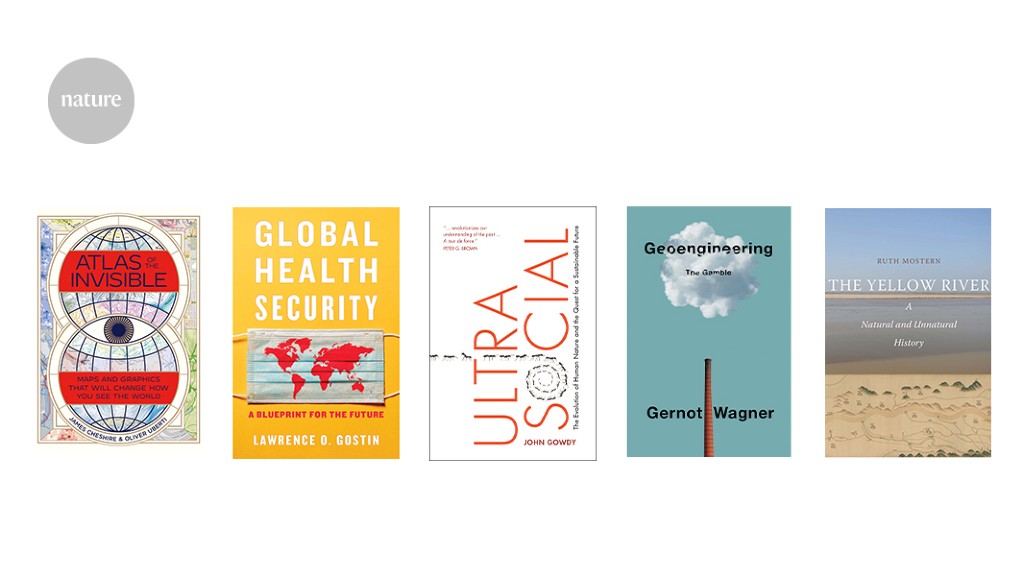BOOK REVIEW 22 December 2021
Global Health SecurityLawrence O. Gostin Harvard Univ. Press (2021)’No one is safe from infectious diseases unless everyone is safe,’ says World Health Organization adviser Lawrence Gostin. Discouraged but inspired by COVID‑19, his wide-ranging study analyses the science and politics of past and present global disease, with hypothetical exercises about a new influenza, bioterrorism and cholera. He recommends steps to reduce pandemic risk, such as increasing surveillance of animal pathogens and their movement. Above all, he calls for a ‘new politics’, free from nationalistic populism. Atlas of the InvisibleJames Cheshire & Oliver Uberti Particular (2021)A circular map of Earth looking down on the North Pole shows 400 fibre-optic cables laid on the ocean floor between 1989 and 2020, providing access to the Internet. It is one of many maps in this intriguing, if sometimes perplexing, book by former National Geographic design editor Oliver Uberti and cartographer James Cheshire. They describe the volume as an ‘ode to the unseen’: a world invisible through text and numbers alone, ranging from the development of genius to aircraft carbon dioxide emissions. GeoengineeringGernot Wagner Polity (2021)Without solar geoengineering to deal with climate change, will Earth inevitably become inhabitable? The hugely controversial, if probably inexpensive, proposal — to cool the planet by using aerosols or other methods to reflect away some of the Sun’s radiation — defines economist Gernot Wagner’s thought-provoking study. Two decades ago, he considered the idea ‘nuts’. He still does, but today he advocates extensive new research and thinks we have to take the ‘gamble’, despite the risks. The issue is now ‘not if, but when’. The Yellow RiverRuth Mostern Yale Univ. Press (2021)China’s Yellow River is ‘the most sediment-laden river in the world’, writes environmental historian Ruth Mostern in her survey of three millennia, based on an innovative historical geographic-information system. The river’s name refers to the endless yellow sediment flowing from its upper plateau; its other epithet, ‘China’s Sorrow’, evokes the frequent course changes and floods in its lower reaches. It has been subject to nearly perpetual construction and repair projects from imperial times to now, amid ongoing uncertainty. UltrasocialJohn Gowdy Cambridge Univ. Press (2021)Modern human society, like that of ants and termites, is dedicated to producing economic surplus. It is ‘ultrasocial’, says economist John Gowdy: so ‘complex, stratified and interconnected’ that humans seem part of a ‘self-regulating superorganism’. To avoid climate-change catastrophe, he argues, we must live like hunter-gatherers — social in small groups, sustainable and egalitarian. But in attributing modern ills to the invention of agriculture, private property, cities and hierarchies, he oversimplifies history. doi: https://doi.org/10.1038/d41586-021-03816-5 The author declares no competing interests.
https://www.nature.com/articles/d41586-021-03816-5
